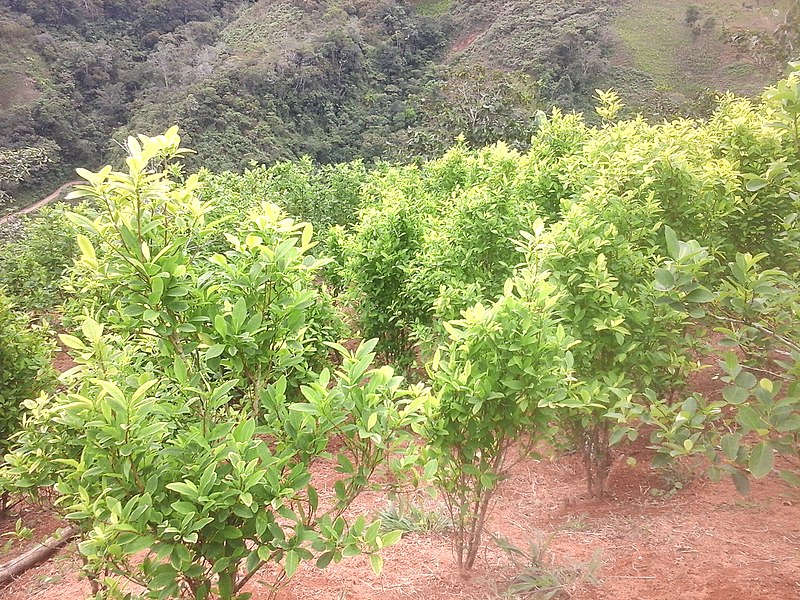
The United States has criticized the Colombian government’s anti-drug policy. According to the Annual Report on International Narcotics Control Strategies, a report issued by the US State Department, Colombia must strengthen both forced and voluntary eradication of illicit crops.
This criticism is not new, and has been repeated more or less every year. Already in 2017, during the presidency of Juan Manuel Santos, the country received questions about the approach to the fight against drugs. History repeated itself in 2018, with the arrival of Ivan Duque as head of state, when the U.S. administration of President Donald Trump claimed that Colombia was “falling behind” in the fight against drugs. Similarly, in 2020, the discord between the two countries surfaced again, when the “failure” of Plan Colombia in terms of counter-narcotics policy was noted.
Proliferation of crops due to lack of rural development
The US report points out that the significant increase in hectares of coca leaf cultivation, the base material for the production of cocaine, is due to the “lack of rural development and security”. In this sense, the US assures that it is necessary to increase funding for illicit crop substitution programs.
“Coca cultivation in Colombia continues to increase due to a lack of rural development and security, as well as sustained or growing demand in consumer countries. To prevent further growth in coca cultivation, Colombia will need to dramatically expand security and rural development, while continuing forced eradication, expanding (voluntary) eradication, and increasing cocaine and precursor interdiction operations,” the U.S. report notes.
The document’s main criticism focuses on the 70% decrease in the eradication of coca-cultivated hectares, from 69,000 in 2022 to about 20,000 in 2023. “Colombian President Gustavo Petro de-emphasized forced eradication and some members of his administration described it as an inefficient tactic with little long-term utility and negative side effects. In addition, Colombian forces were periodically called in to respond to protests and address citizen security problems in urban centers, which limited overall eradication capacity throughout the year; the army ceased forced eradication operations altogether,” the report quoted El Tiempo as saying.
Assessment of law enforcement operations
On the other hand, the US also highlights the efforts of the Colombian police and army, which have prevented hundreds of tons of cocaine from entering the United States, noting that Colombia reported the seizure of more than 842 tons of cocaine hydrochloride in 2023, an increase of 10% compared to the figure for 2022 (766 tons). In addition, they note a 12% increase in the destruction of laboratories for the production of the drug, which during 2023 were 5,260.
Similarly, the Americans are in line with the Colombian government’s proposal, presented in September 2023, and the anti-narcotics strategy. In it, Colombia proposes to strengthen the interdiction of drug trafficking activities, in addition to emphasizing rural development and collaboration with communities. In this regard, the Annual Report on International Drug Control Tactics notes that “the initiative promotes a comprehensive interagency and governmental approach that aligns, to a large extent, with the overall U.S.-Colombia counternarcotics strategy”.

Meeting with U.S. Drug Enforcement Director
The U.S. report was released just yesterday, March 5, the day of the meeting between President Gustavo Petro with the director of the White House Office of National Drug Control Policy, Rahul Gupta, and U.S. anti-drug delegates. The meeting, which was also attended by the Minister of Defense, Ivan Velasquez, and the Minister of Agriculture, Jhenifer Mojica, analyzed the crop substitution policy being developed in Colombia, which the Americans criticize for being inadequate.
In declarations to W Radio, the Minister of Justice, Nestor Osuna, proposed to the director of the White House Office of Drug Control Policy that the U.S. government encourage the importation of Colombian agricultural products, such as shrimp or chocolate, to open new opportunities for the families that currently grow coca.
“The two governments (are) facing this problem of cocaine consumption with innovative strategies, with strategies that aim to solve a problem of public health, violence and armed conflict, from which we can get out if all the governments of the world agree to face it effectively”, commented Minister Osuna.

See all the latest news from Colombia and the world at ColombiaOne.com. Contact our newsroom to report an update or send your story, photos and videos. Follow Colombia One on Google News, Facebook, Instagram, and subscribe here to our newsletter.

